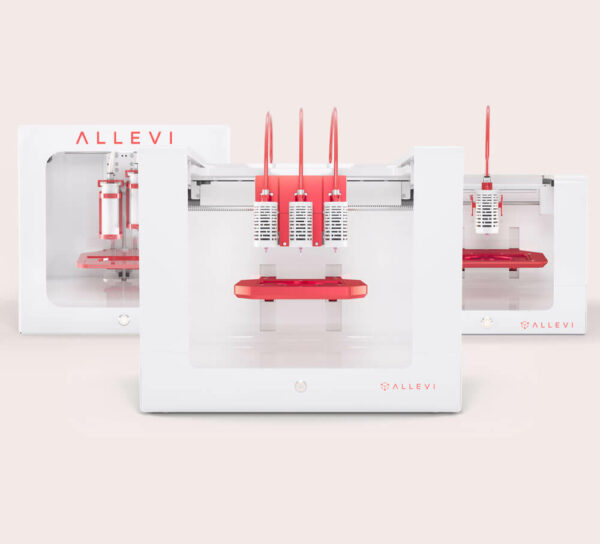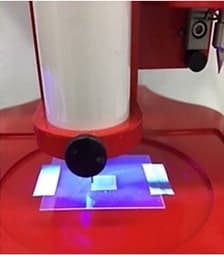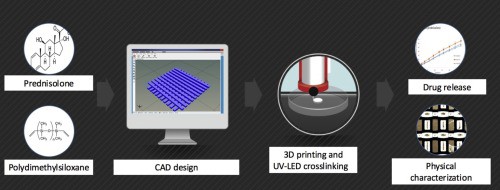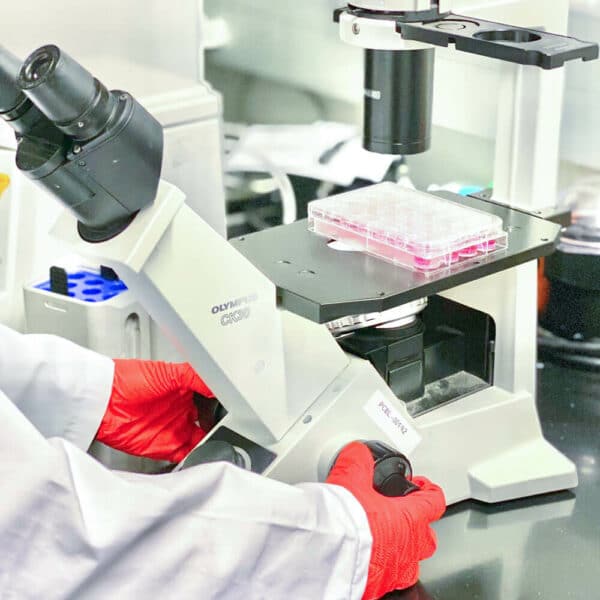
Allevi Blog
Allevi Author: 3D bioprinting drug delivery systems
- Updated on April 9, 2020

Time for another #AlleviAuthor – Researchers from Abo Akademi, University of Helsinki and University of Turku use the Allevi 2 for 3D bioprinting drug delivery systems.
Their paper studies the printability of PDMS to manufacture drug containing structures of different pore sizes and different drug loadings. The 3d bioprinted structures contained prednisolone as the model drug.
The goal of this work was to study the printability of PDMS with a semi-solid extrusion printer in combination with the UV-assisted crosslinking technology using UV-LED light to manufacture drug containing structures. Structures with different pore sizes and different drug loadings were prepared containing prednisolone as a model drug.

The work showed that by altering the surface area/volume ratio it was possible to print structures with differences in the release rate. The fact that the 3d bioprinting was performed at room temperature makes this an interesting alternative for manufacturing controlled release device with temperature susceptible drugs.
Imagine being able to 3d bioprint the perfect drug for YOUR biology – to be able to control geometry, custom release rates, and multi-drug composition. This paper explores the future of truly personalized drug delivery.
Download the full paper on 3D bioprinting drug delivery systems here.

